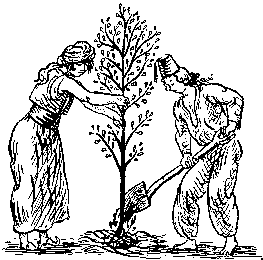 Finishing Candide, I was left confused. Why would Voltaire bring back to life both Pangloss and the Baron? Also, the way he ended the novel Final chapter "Conclusion" seemed that he wanted to rush things through and get it over with. My expectations were that Candide would finally find what he was looking for without any problems but it seemed that from the beginning, the story was nothing but a misfortune.
Finishing Candide, I was left confused. Why would Voltaire bring back to life both Pangloss and the Baron? Also, the way he ended the novel Final chapter "Conclusion" seemed that he wanted to rush things through and get it over with. My expectations were that Candide would finally find what he was looking for without any problems but it seemed that from the beginning, the story was nothing but a misfortune.Although the highly noticeable rushing of Voltaire to end the novel, he ends it with a simple sentence, that again must be analyzed to comprehend its very core meaning.
"'That's true enough,' said Candide; 'but we must go and work in the garden.'" (pg. 144)
Going a bit back we can see Pangloss explains what Candide means in garden. “’I also know,’ said Candide, ‘that we must go and work in the garden.’
'You are quite right,’ said Pangloss. ‘When man was placed in the Garden of Eden, he was put there “to dress it and to keep it”, to work, in fact; which proves that man was not born to an easy life.’” (pg 143)
I find it interesting that pangloss, after having a much distant theory of life with everything is for the best and everything is made for an apparent reason, he suddenly believes in the Bible's theory of life. Another thing that makes me question what was going on in Voltaire's head as he wrote these final pages.
Though my interpretation of the last sentence of Candide is that each garden is different to every person. Some work hard on it and some don't. Some have more in it and others less. Thus the garden is someone's life. Candide states that everything that has happened before may had an impact on the present but what lies on the future, lies on what one wants to gain from it. Of course, Voltaire's garden is figuratively and is far away from being the same as the garden in the Bible.
Finally, this book was interesting to read. Never have I read satirical books, essays or poems in my life and was both confusing, irritating and funny when it came to understanding but the only words I am left are: Why Voltaire, why?


No hay comentarios:
Publicar un comentario